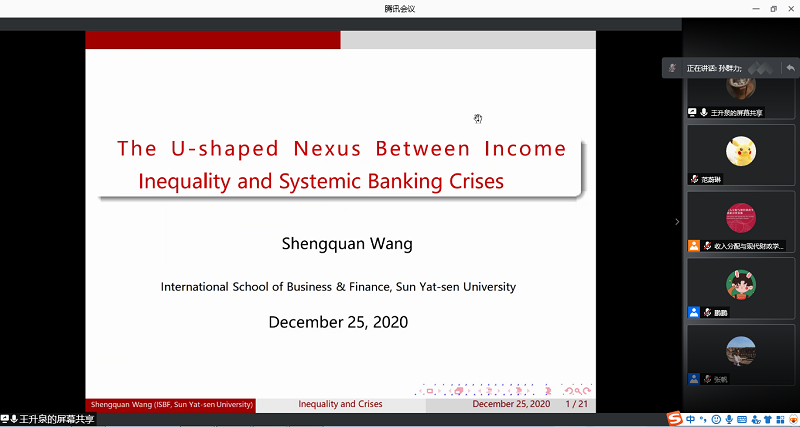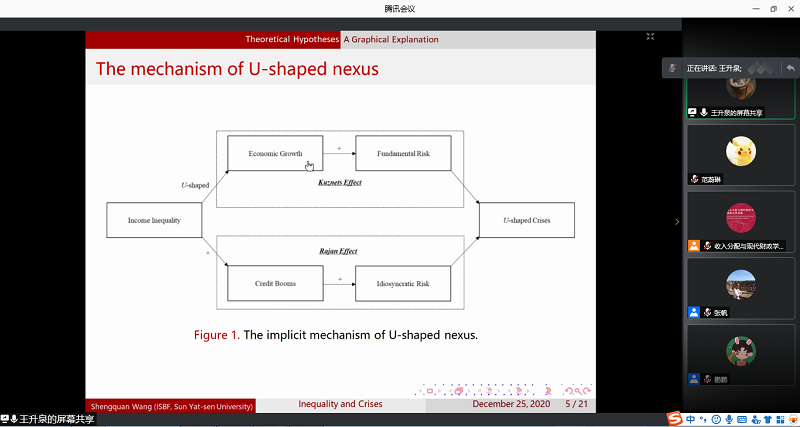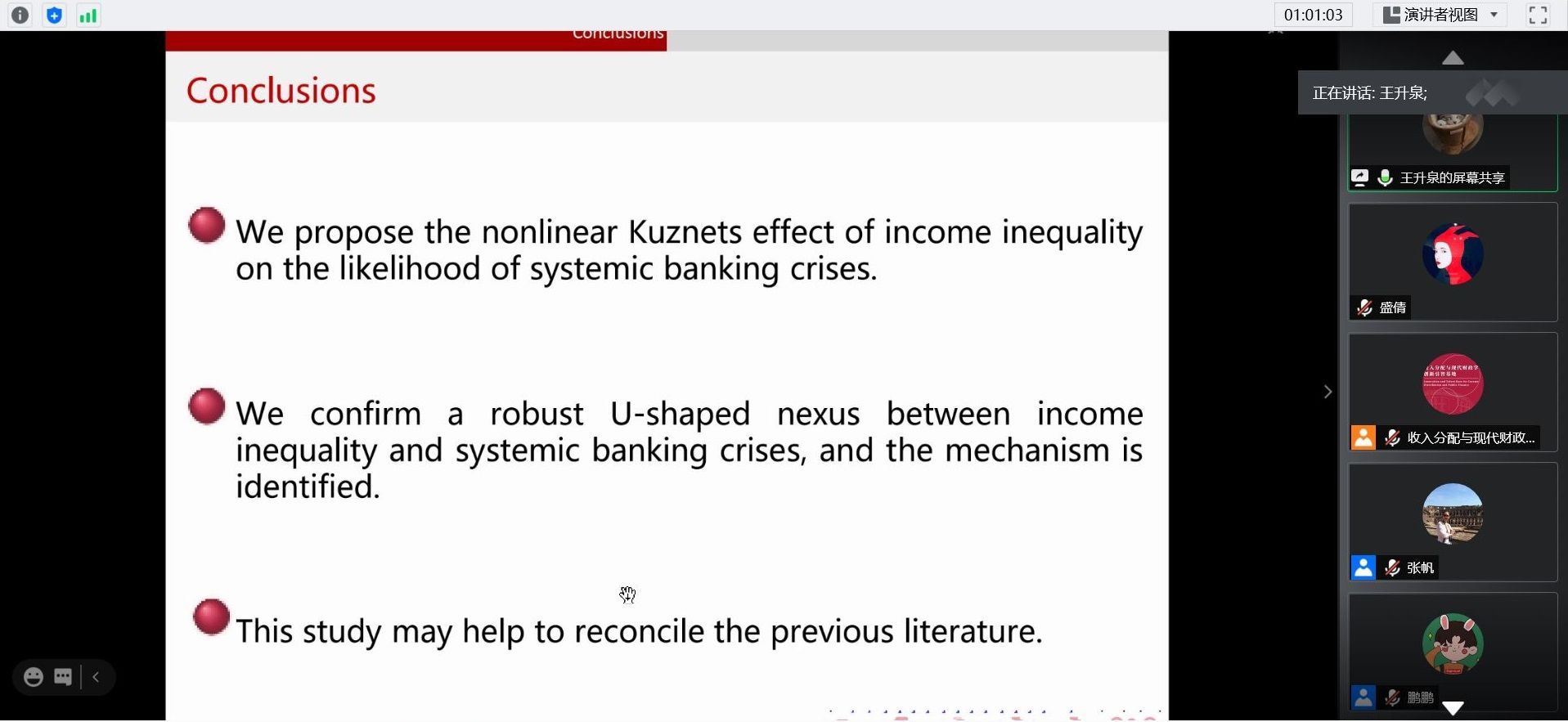On 25 December 2020, the 8th Xixian Forum of Income Distribution and Public Finance has been successfully held by the School of Public Finance and Taxation and the Innovation Base for Income Distribution and Public Finance on online Tencent Meeting. Wang Shengquan, a postdoctoral fellow at Sun Yat-sen University, the keynote speaker at the forum, gave an academic talk entitled The U-shaped Nexus Between Income Inequality and Systemic Banking Crises.

Marxist political economy states that inequality in income distribution is one of the indirect causes of economic crises. On this basis, Dr Wang Shengquan studied the relationship between income inequality and systemic banking crises. Dr Wang first analysed a large body of prior domestic and international research literature on the subject and found that factors such as credit booms and economic cycle effects can have an impact on financial crises, with the Rajan effect suggesting that income inequality is a fundamental cause of financial crises. Combining the Rajan and Kuznets effects, Dr Wang empirically tested the Rajan and Kuznets effects that income inequality affects financial crises, using relevant data for 172 countries (economies) from 1960 to 2017. Findings suggest that income inequality is a strong predictor of systemic banking crises, and income inequality shows a non-linear U-shaped relationship with systemic financial risk.

After the presentation, teachers and students had an active interaction with Dr Wang Shengquan online. Dr Wang Shengquan focused on Prof. Sun Qunli's question of integrating more of the current research on cross-border data with the Chinese practice. He also provided answers to other questions such as robustness tests in empirical evidence.

